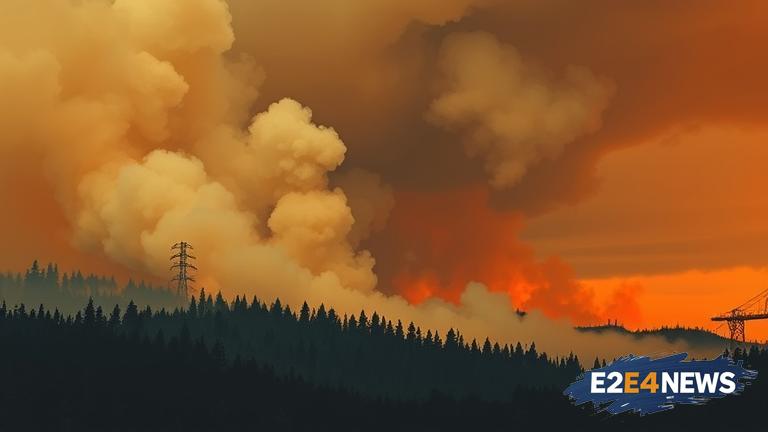As wildfires continue to ravage communities across the globe, the importance of protecting oneself from the harmful effects of wildfire smoke cannot be overstated. Wildfire smoke contains a plethora of toxic particles and gases, including particulate matter, carbon monoxide, and volatile organic compounds, which can have severe consequences for human health. Prolonged exposure to wildfire smoke has been linked to a range of health problems, including respiratory issues, cardiovascular disease, and even cancer. In order to mitigate these risks, it is essential to take proactive steps to protect oneself from the dangers of wildfire smoke. One of the most effective ways to do this is by using air purifiers, which can help to remove particulate matter and other pollutants from the air. Additionally, wearing N95 masks can provide a high level of protection against fine particles, making them an essential tool for anyone living in or near areas affected by wildfires. Furthermore, staying indoors with windows and doors sealed can help to prevent the ingress of wildfire smoke, while avoiding strenuous outdoor activities can reduce the risk of exposure. It is also crucial to monitor air quality indexes and follow the advice of local health authorities, who can provide guidance on the best ways to protect oneself from wildfire smoke. In areas where wildfires are common, it may be necessary to take additional precautions, such as installing HEPA filters in homes and vehicles, or using personal air quality monitors to track pollution levels. Moreover, individuals with pre-existing medical conditions, such as asthma or chronic obstructive pulmonary disease (COPD), may need to take extra precautions to protect themselves from the harmful effects of wildfire smoke. By taking these steps, individuals can significantly reduce their risk of exposure to wildfire smoke and protect their health. It is also important to note that wildfire smoke can have a disproportionate impact on vulnerable populations, including children, older adults, and those with compromised immune systems. As such, it is essential to take a proactive and inclusive approach to protecting public health, one that prioritizes the needs of these vulnerable groups. In addition to individual actions, communities can also take steps to mitigate the effects of wildfire smoke, such as implementing air quality monitoring systems and providing public education campaigns. By working together, we can reduce the risks associated with wildfire smoke and create healthier, more resilient communities. The impact of wildfire smoke on mental health should not be overlooked, as the stress and anxiety caused by these events can have long-lasting consequences. Therefore, it is essential to prioritize mental health support and provide resources for those affected by wildfires. In conclusion, protecting oneself from wildfire smoke requires a comprehensive approach that incorporates individual actions, community-based initiatives, and a commitment to prioritizing public health. By taking these steps, we can reduce the risks associated with wildfire smoke and create a safer, healthier environment for everyone. The importance of wildfire smoke protection cannot be overstated, and it is essential that we take proactive steps to safeguard our health and wellbeing. As the frequency and severity of wildfires continue to increase, it is crucial that we develop and implement effective strategies for mitigating the effects of wildfire smoke. This can involve investing in air quality monitoring systems, providing public education campaigns, and supporting research into the health effects of wildfire smoke. By working together, we can reduce the risks associated with wildfire smoke and create a better future for ourselves and our communities. Wildfire smoke protection is a critical issue that requires immediate attention and action, and it is essential that we prioritize this issue in order to protect public health and wellbeing. The consequences of inaction could be severe, and it is essential that we take proactive steps to mitigate the effects of wildfire smoke. In order to do this, we must work together to develop and implement effective strategies for protecting ourselves and our communities from the dangers of wildfire smoke.




